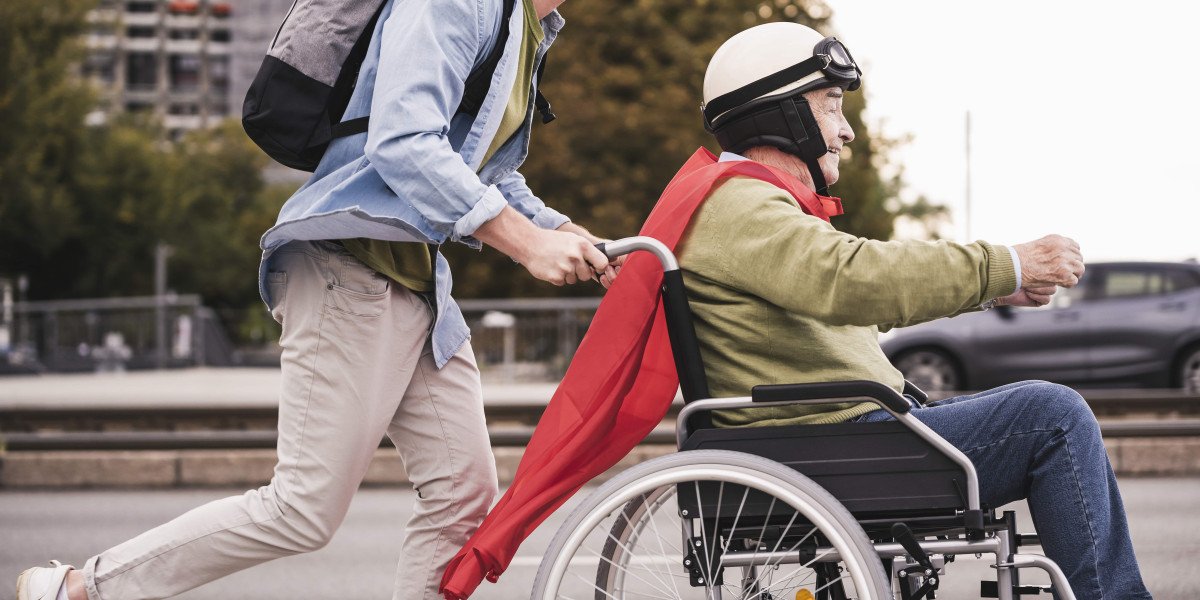
Understanding Bariatric Rollators: A Comprehensive Guide
As the population ages and the occurrence of obesity continues to increase, the need for mobility aids that accommodate specific requirements has increased. Among these aids, the bariatric rollator stands apart as an important tool for people needing additional assistance while keeping their mobility. This post explores the functions, benefits, and crucial considerations when using bariatric rollators.
What is a Bariatric Rollator?
A bariatric rollator is a mobility aid designed specifically for individuals who are obese or have weight problems. It is steadily developed to support higher weight capacities compared to standard rollators, offering users with increased safety and stability. The term 'bariatric' typically refers to the branch of medicine that handles the causes, prevention, and treatment of obesity, and in this context, it highlights the rollator's viability for heavier individuals.
Secret Features of Bariatric Rollators
| Feature | Description |
|---|---|
| Weight Capacity | Typically created to support 300 to 600 pounds, depending upon the design. |
| Width and Stability | Wider frames and wider seats use enhanced balance and comfort. |
| Durable Materials | Built from durable aluminum or steel for boosted durability. |
| Brakes | User friendly hand brakes offer extra safety and control. |
| Seating Options | Lots of designs include a padded seat and backrest for resting. |
| Storage Features | Storage baskets or bags for bring personal products firmly. |
Benefits of Using a Bariatric Rollator
Bariatric rollators use numerous benefits for people facing mobility difficulties, including:
- Enhanced Safety: With a steady design and high weight capacity, bariatric rollators decrease the threat of falls.
- Enhanced Independence: These rollators enable users to walk around more easily, promoting autonomy in everyday activities.
- Comfy Support: Many models provide cushioned seating choices, allowing users to take breaks as required.
- Availability: Features like adjustable heights and easy-to-handle brakes accommodate a variety of user choices and needs.
- Convenience: Equipped with storage options, bariatric rollators make it easy for users to bring fundamentals, permitting higher situational awareness.
Essential Considerations When Choosing a Bariatric Rollator
When choosing a bariatric rollator, specific factors need to be kept in mind to ensure that the selected design lines up with the user's specific requirements.
1. Weight Capacity
Evaluate the maximum weight capacity of the rollator. It is important to pick a model that goes beyond the user's weight for safety and stability.
2. Size and Dimensions
Consider the total dimensions of the rollator. Broader frames can provide better stability, but it's necessary to guarantee it fits comfortably through doorways and corridors.
3. Relieve of Use
The rollator should be easy to steer and run. Features such as adjustable manages and lightweight materials can assist improve usability.
4. Convenience
Since users may invest extended durations utilizing the rollator, it is vital to think about designs that offer comfy seating and ergonomic handles.
5. Mobility
For those who travel frequently or prefer to take their rollator on trips, think about a design that can be easily folded and transferred.
6. Devices
Some rollators include extra functions such as cup holders, trays, or mobility bags for bring personal items.
Popular Bariatric Rollators on the marketplace
Below is a selection of popular bariatric rollator options offered in the market today.
| Model | Weight Capacity | Measurements | Price Range |
|---|---|---|---|
| Nova 3 Wheel Walker | 350 pounds | 26 x 24 x 30-38 inches | ₤ 200 - ₤ 300 |
| Drive Medical Rollator - Git.Siin.Space, | 500 pounds | 30 x 27 x 32 inches | ₤ 200 - ₤ 250 |
| Medline Bariatric Walker | 450 lbs | 29.5 x 24 x 31.5 inches | ₤ 150 - ₤ 200 |
| Tuffcare Heavy-Duty Walker | 600 lbs | 26 x 26 x 33 inches | ₤ 250 - ₤ 350 |
Often Asked Questions (FAQs)
Q1: Who should use a bariatric rollator?
A: Bariatric rollators are developed for individuals who are obese or have obesity, facing mobility obstacles. They provide essential support to enhance safety and stability while walking.
Q2: How do you keep a bariatric rollator?
A: Regularly examine the rollator for any loose screws or damage. Tidy the frame and wheels with moderate soap and water, and oil moving parts if necessary.
Q3: Can a bariatric rollator be used outdoors?
A: Yes, lots of bariatric rollators are developed for both indoor and outdoor use. However, it is vital to choose designs with suitable wheel sizes for outdoor surface areas.
Q4: Are bariatric rollators adjustable?
A: Most bariatric rollators come with adjustable manages that enable users to personalize the height according to their comfort, making them suitable for different users.

Q5: Can you use a bariatric rollator if you do not have weight problems?
A: Yes, bariatric rollators can be used by anybody who requires extra support, even if they do not have weight problems. The key is guaranteeing the rollator satisfies their mobility needs.
The bariatric rollator is an indispensable mobility aid that incorporates both functionality and safety for individuals requiring higher support. By comprehending the features, benefits, and factors to consider surrounding these devices, users can make educated decisions that cater to their specialized needs. As society continues to prioritize health and mobility, the availability of encouraging tools like bariatric rollators remains essential in promoting independence and enhancing quality of life for lots of.








